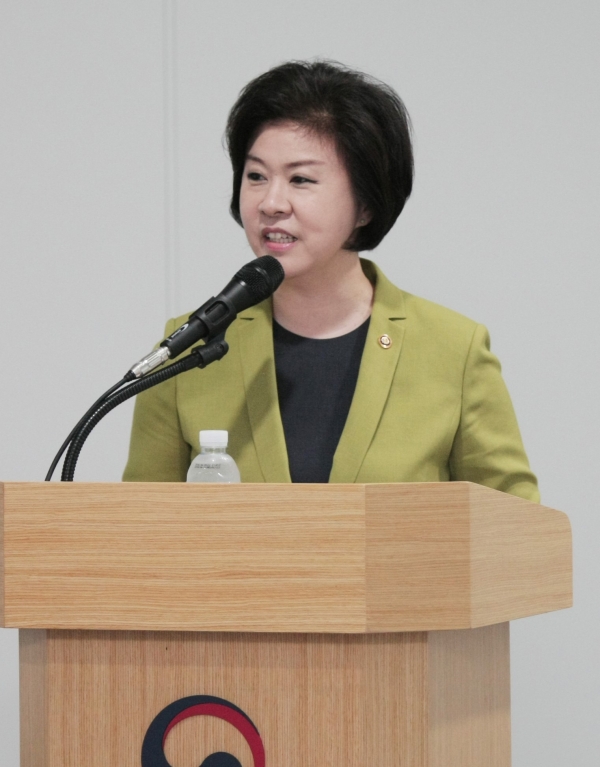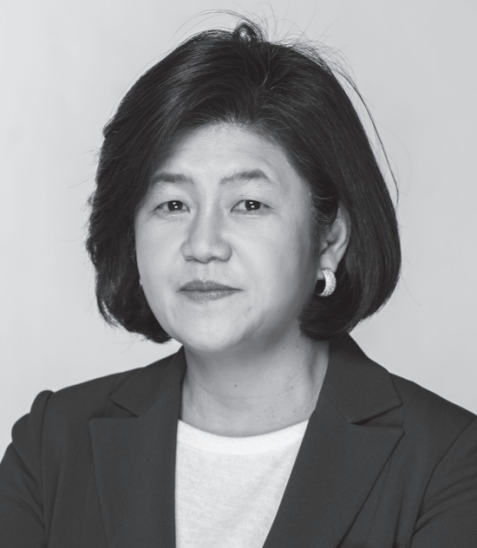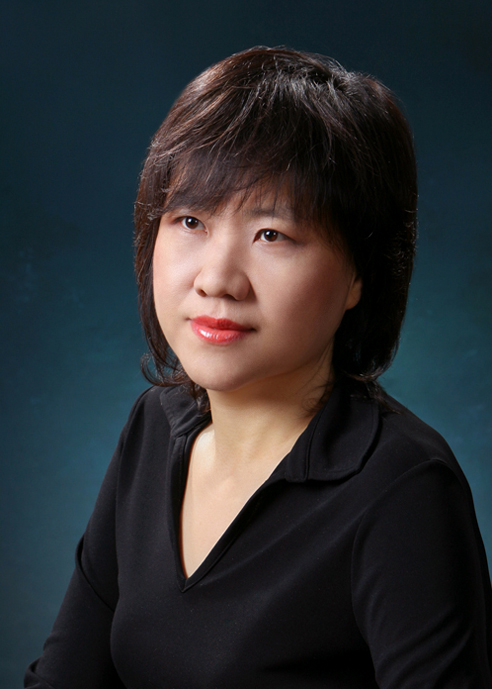According to the glass-ceiling index published by the Economist, a British weekly magazine, Korea has been ranking lowest for the last nine years among 29 countries. While the average score was 59.6, South Korea ranked last, recording 24.8 out of 100. The index was calculated by scoring 100 points based on nine categories, such as the employment rate of women, wage difference between men and women, and female parliamentary positions. At a time when women are struggling from these barriers, Ewha alumnae have shown their competence in diverse areas, from management, diplomacy to politics and law. Ewha Voice interviewed Kwak Jin-young, a professor at Konkuk university, who was the vice chairman of the Anti-corruption and Civil Rights Commission, Lee Jung-min, an editorial writer at JoongAng Ilbo, who was the first female editor of the Politics section and the first female Editor-In-Chief at JoongAng Ilbo, and Lee Joo-hee, a professor from the Sociology Department.
Professor Kwak Jin-young, former Vice Chairperson of Anti-Corruption and Civil Rights Commission, opens up about the glass ceiling

Professor Kwak Jin-young, current professor in the Department of Political Science at Konkuk University and former Vice Chairperson of the Anti-Corruption and Civil Rights Commission (ACRC), provided an in-depth analysis of the glass ceiling in Korea based on her personal experience and expertise.
Recalling her journey towards where she is now, Professor Kwak traced her experiences of discrimination and the difficulties she faced. Her first step out into the real world started with Korea’s first presidential think tank, which is today’s Commission on Policy Planning. During that period, it is no surprise that gender inequality was prevalent.
“At the time, men were called by formal titles and women were simply called ‘Miss,’” Kwak said. “Once, when I had to visit Cheongwadae, the Blue House, to report about what I had been working on, I was not permitted to enter. Although I was the person in charge, the male researcher that accompanied me was given permission to enter.”
Several years did not make much of a difference, and progress was still sluggish. Even after receiving a Doctor of Philosophy degree in Political Science from Northwestern University to become a professor, she still encountered phases of difficulty due to her gender.
“It is no exaggeration to say that discrimination and fierce glares were part of my daily life as I struggled to become a professor in Korea,” Kwak recalled. “As a result, I failed multiple times. Furthermore, stereotypes towards female professors not being able to successfully do their job while taking care of their children were common.”
In the face of all conflicts and barriers Kwak faced along the way, she tried to provide efficient and realistic solutions.
“Rather than reacting emotionally about unfairness, I tried to stay rational and deliver my thoughts calmly,” Kwak said. “When I came up to people with my thoughts, some had not even considered them as a problem, whereas others were flexible enough to take notice.”
Multiple legislations encouraging women to break the glass ceiling in today’s society is a truly welcoming phenomenon. However, Kwak thinks the problem still remains, and future development should be made. Most importantly, she acknowledges that the society’s structure makes the problem challenging.
“I am still trying to overcome the society’s structural prejudice against women,” Kwak said. “I believe that institutional policies should be made to help the process of socialization from childhood.”
Kwak particularly has tried to break the glass ceiling by putting in much more than usual when completing a task than the effort she would usually put in.
“Being prepared is as important as being passionate,” she said. “In the future, the society would consist of endless competitions and would require one to explore and utilize one’s unique expertise.”
Lee Jung-min stays at the forefront of leadership at JoongAng Ilbo

Lee Jung-min works as an editorial writer at JoongAng Ilbo, one of the three biggest newspapers in Korea. Lee worked as the first female editor of the Politics section at JoongAng Ilbo and became their first female Editor-In-Chief.
In 2013, Lee mentioned in an interview that the fact that the glass ceiling still existed in journalism was undeniable. Eight years have passed since she shared her aforementioned thoughts in an interview. However, Lee’s thoughts have not changed with respect to the glass ceiling at workplaces.
“The glass ceiling exists in various fields of society,” Lee said. “It is not something that can be solved instantly. Even when you think that women have broken the glass ceiling, that moment would be fleeting unless women work as hard as possible. Only when women are considered to have strong leadership will they be able to cross the hurdle.”
Lee explains that the prejudice and stereotype against female reporters have somewhat improved compared to the past.
“Female reporters tend to be more competitive in some aspects and the organizations, including JoongAng Ilbo, recognize this tendency,” Lee said.
One noticeable characteristic of the job of a reporter is that the working environment is full of competition every day, as one may have the chance to report an exclusive while others miss the chance. Correspondingly, Lee thinks that a reporter’s reputation depends on one’s competitiveness in the workplace rather than one’s gender.
“If one considers oneself as a ‘minority,’ they cannot help being discouraged and passive towards his or her tasks,” Lee said. “Therefore, it is crucial for people to consider themselves as a leader.”
Professor Lee Joo-hee analyzes the glass ceiling in today’s Korean society

Lee Joo-hee, a professor from the Sociology Department explained the definition of glass ceiling in an interview with Ewha Voice.
“The glass ceiling is an invisible practice and culture which prevents women from being promoted in an organization,” Lee stated. “We use the term ‘glass ceiling’ when women face more and more obstacles as they climb the hierarchical ladder within an organization.”
Lee had written a cover story for Economy Insight in 2011 regarding the glass ceiling. When asked about the difference between the past circumstances and the current situation regarding the glass ceiling, she replied quite positively.
According to Lee, although women’s educational standards have risen especially for young women and many career developments have continued over the past decade, problems such as gender discrimination in employment and low percentage of women in high-ranking positions have hardly been resolved. Nevertheless, she hinted that there will be more momentum for positive change in the future since the awareness of such problems has definitely increased in comparison with the past.
Additionally, Lee noted that South Korea’s glass ceiling index is still hovering at the bottom of the global level. She stated that while progress has been made, gender equality has improved at a faster rate in other developed countries.
“One of the problems that needs to be addressed and strictly regulated is the practice of sexist recruitment interviews,” Lee emphasized. “After recruitment, we should expand quality public childcare and encourage men to take maternity leaves to prevent women’s career break. Maternity leaves will enable men to divide responsibilities such as house chores and parenting, ultimately breaking the stereotypical gender roles.”
Furthermore, Lee noted that deliberate efforts to increase the proportion of women in high-ranking positions, such as executives, are needed. She mentioned that whereas many developed countries have already implemented gender quota systems, South Korea is still in the phase of examining the system.
“Even though the achievement of the system can be difficult due to the public's hostility, we need to set a more systemic program by providing incentives to companies that execute the program,” Lee said.
Professor Lee further encouraged women not to give up despite the difficulties resulting from work life imbalance since career break is the primary reason for the existence of glass ceilings.
“Only when participation in the labor market becomes an important life goal to women, not a choice, will we be able to convince men to participate in housework and parenting,” she said. “Once in a leadership position with enough decision-making authority, I believe that women could become leaders who continuously try to change unreasonable sexist practices and culture in the organization for the younger female employees.”
The Moon administration has put effort into providing a better working environment for women through the plan of promoting representation of female delegates in the public sector. According to the Ministry of Gender Equality and Family, there has been a continuous increase in female executives in public institutions and a growing perception of women in high- ranking positions.
“It is true that there have been some improvements, but I still feel there is a long way to go,” Lee noted. “What is more important than appointing a few women in high positions is forcibly changing the unfair social structure so that a majority of women can pursue their career without obstacles. Since women tend to have more burden in housework and parenting, practical changes, such as resolving the unfair long working hours, should be made.”

